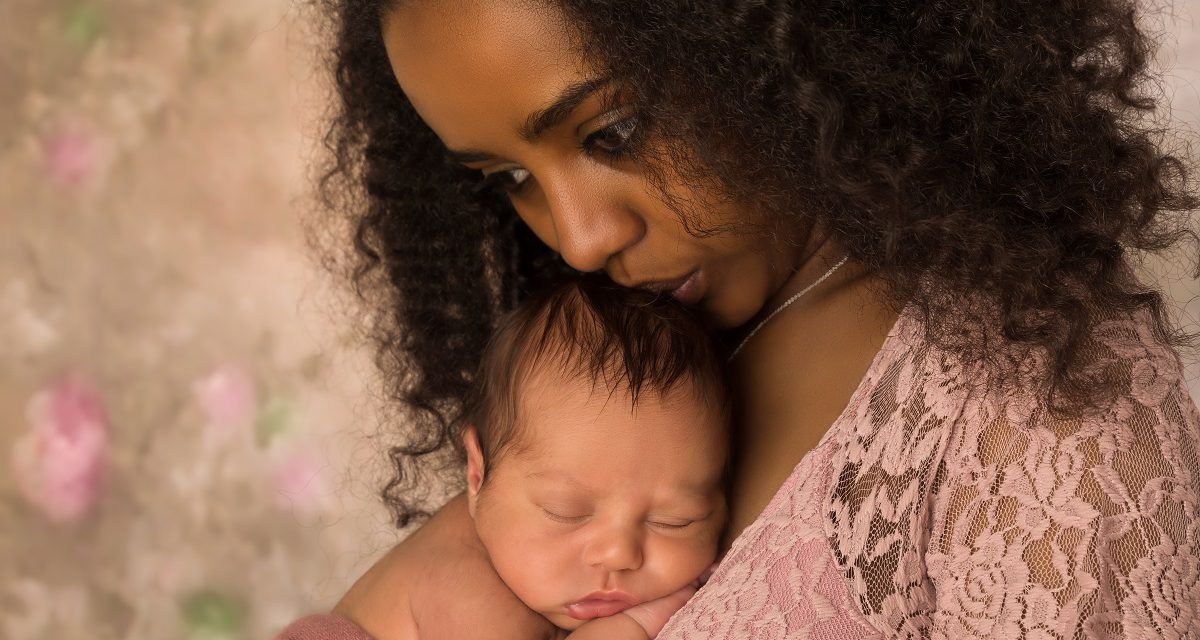The American Academy of Pediatrics (AAP) recommends that infants be exclusively breastfed for the first 6 months, as breastfeeding has numerous health benefits for both the parent and baby. Infants who are breastfed are less likely to develop diarrhea, respiratory tract infections, diabetes, and other diseases. Parents who breastfeed have a better postpartum recovery, lose pregnancy weight faster, and are at lower risk of breast and ovarian cancer, according to the AAP. There are also emotional benefits, as breastfeeding initiates feelings of satisfaction and bonding between mother and baby with the release of hormones such as oxytocin. However, even with all these benefits, there are still disparities between Black parents and parents of other racial categories who breastfeed. In fact, according to the Centers for Disease Control and Prevention (CDC), Black infants are less likely to be breastfed than babies of other racial groups.
A Painful History
Throughout the generations after American slavery ended, women in the Black community have distanced themselves from the act of breastfeeding due to the painful and racist history of wet nursing. The pregnancies of Black enslaved women were often timed, by their white masters, to align with the pregnancies of their white mistresses. This was done so that the Black enslaved women would be able to produce the milk to nurse her white mistress’ infant, even if it meant neglecting her own. Oftentimes, the Black infants were sold shortly after birth, and many – regardless of if they were sold away from their mothers – died due to not being breastfed.
This traumatic cultural memory has been passed down to mothers throughout the Black community, and it contributes to the perception that breastfeeding is a “white thing.” Breastfeeding in the Black community is currently such a taboo that many women throughout Black families don’t even talk to each other about it. This is due not only to the racist history of wet nursing, but breastfeeding being sexualized and viewed as inappropriate outside the mother’s home.
Barriers to Benefits
There is a severe shortage of lactation education in the Black community. Additionally, Black mothers who are of the working class have less opportunity to nurse their children after giving birth, as they return to work sooner than mothers with higher incomes. Even for mothers who pump their breast milk into a bottle to feed their babies later, unsupportive work environments make this an impossible feat for most.
Black women who live in communities highly populated by other Black people are also less likely to have access to a lactation consultant or specialist. Evidence from the CDC showed that hospitals that serve mostly Black patients have lower instances of meeting criteria that supports breastfeeding. The National Institutes of Health (NIH) also reports that Black mothers have raised concerns over the racial bias they experience in medical settings, stating that their nurses were less interested in educating them and encouraging them to breastfeed. This is concerning, as evidence shows that new mothers are more likely to breastfeed when they are encouraged by their health care professionals. The NIH reports that of the mothers who are encouraged by their doctors or nurses to breastfeed, more than 73% follow through with it compared with 40% of mothers who initiate breastfeeding without encouragement.
There is Help
For Black mothers who want to nurse their children, a plethora of resources and support groups are available online. Some organizations even offer breastfeeding clubs via Zoom. For those who would prefer local support, Facebook groups within the area are another viable option.
Pediatricians and other health care providers can also support Black mothers by opening their own eyes to unconscious bias and how it plays a pivotal role in their work and how they interact with Black patients. Furthermore, increased access to doula and midwifery services is imperative. Parents who enlist the help of doulas and/or midwives are more likely to initiate breastfeeding, and have an overall positive birthing experience, than families who don’t seek those services.
Decolonizing Breastfeeding
For Black mothers who are physically and emotionally capable (with respect to various traumas that prevent breastfeeding, regardless of race), breastfeeding is a powerful act of resistance. This is due to the fact that we are able to reclaim our bodies and do for our children what was stripped from our maternal ancestors in the grips of slavery. Additionally, breastfeeding is yet another action that places the health of our Black children, who face a host of medical disparities, in our own hands.
Whether or not mothers choose to breastfeed their children is strictly their choice. However, for Black mothers especially, dismantling negative cultural attitudes associated with breastfeeding is a must. Whether it is the hyper sexualization of the Black woman’s body or the historic racial implications that weigh down the act of breastfeeding, none of it truly compares to the benefits to both mind and body that nursing provides in a safe and encouraging context. Additionally, elevating the number of Black mothers who breastfeed is a simple step in reducing infant mortality rate within the Black community. Black mothers and babies matter, and encouraging nursing is one of many ways to underscore this fact.








